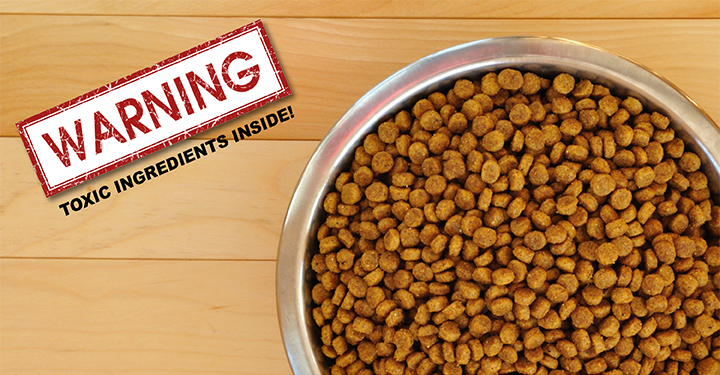by Dogs Naturally Magazine: A few months back, The Truth About Pet Food’s Susan Thixton initiated a consumer funded pet food evaluation. The test results are now in and they might surprise you (although they didn’t surprise us here at DNM). The Pet Food Test analyzed twelve pet food products (six cat foods and six dog foods). Testing was performed through INTI Services, which shipped the products to laboratories for evaluation. Why Mycotoxins Are A Threat Mycotoxins were first discovered in 1962 in England, when a ground peanut meal killed approximately 100,000 turkeys. Mycotoxins are derived from…
Read MoreAuthor: Healthy Dog Club
How your dog benefits from coconut oil
Dogs Naturally: Although supplements can be a confusing topic for many pet owners, most dog owners have heard of the benefits of feeding fish oils. There are however, a variety of oils that you can also use to your dog’s benefit, each with different actions and benefits. Coconut oil consists of more than 90% saturated fats, with traces of few unsaturated fatty acids, such as monounsaturated fatty acids and polyunsaturated fatty acids. Most of the saturated fats in coconut oil are Medium Chain Triglycerides (MCTs). The main component (more…
Read MoreThings to think about before you bring your dog to a dog park
By: Jaymi Heimbuch at Mother Nature Network http://www.mnn.com Dog parks are supposed to be fun — but often they’re not. Here’s what dog owners can do to fix that problem. Dog parks. They’re a play heaven for our furry friends, right? Well, not really. Dog parks are one of those places that seem like a brilliant idea — and would be, if we all knew how to behave. But we don’t. As many a trainer has told me, you can potentially ruin your dog by taking her to dog…
Read MoreIs cancer in pets preventable?
By Robert Mueller, B. Pharm. The rate of humans contracting cancer is ever increasing and unfortunately this trend is as prevalent in veterinary clinics as it is in medical facilities across the United States. It has been reported that cancer is a major killer in our pet population and is thought to be responsible for 45% of dog deaths (in pets that have lived at least 10 years). In humans, the statistics support that one in four will contract cancer.[1] Even with the advances in medical techniques and new…
Read MoreIt’s All About Choices
“By nature, dogs are scavengers and will eat whatever they are able to. Since our modern day pet does not have to live so opportunistically, it is the owner’s prerogative to seek out the best CHOICE of diet for our four-legged companions.” By Robert Mueller, BSc, Pharm. Here in America, we are very fortunate to be able to choose what we want to eat, enjoy it when we are ready, and have it cooked (or not cooked) exactly to our liking. This is called freedom of choice. Our pet…
Read MoreAsk an expert: What’s Really Causing Those Hot Spots and Itchy Skin?
By By Robert Mueller, B. Pharmacist What’s causing my dog to itch and scratch so much…why the hot spots and what can I do to stop it? I can’t bear to watch it anymore…it really hurts me to see my dog suffer. I thought for a while before I replied to her because the solution she was looking for was complicated… like isolating the cause of cancer. There is simply not a one-word answer…because skin and allergy issues are normally the result of several triggers…and in the end it…
Read MoreDoes Vitamin D play a role in our pets health?
Source – Dr. Mauria O’Brien Got vitamin D? Most people know that this compound, a supplement frequently added to milk, plays a role in developing and maintaining healthy bones. But recent findings in humans suggest that vitamin D has a much broader effect on health and immune function. Dr. Mauria O’Brien, a specialist in emergency and critical care at the University of Illinois Veterinary Teaching Hospital in Urbana, is determined to find out what this means for animals. “Many studies in humans have found that low vitamin D status…
Read MoreThis Feeding Mistake Can Lead to a Fatal Deficiency
Dr Becker at Mercola Pets Thiamine, or vitamin B1, is a water-soluble vitamin absorbed from the diet through the small intestine, and is necessary for normal carbohydrate metabolism. Organs that use a lot of energy, like the brain, can be severely compromised by a thiamine deficiency. A lack of thiamine can also lead to a buildup of lactate, resulting in acidosis. How Your Pet Can Become Thiamine-Deficient In recent years, there have been several major recalls in the U.S. for thiamine-deficient pet foods. Cats require about three times the amount of dietary…
Read More







